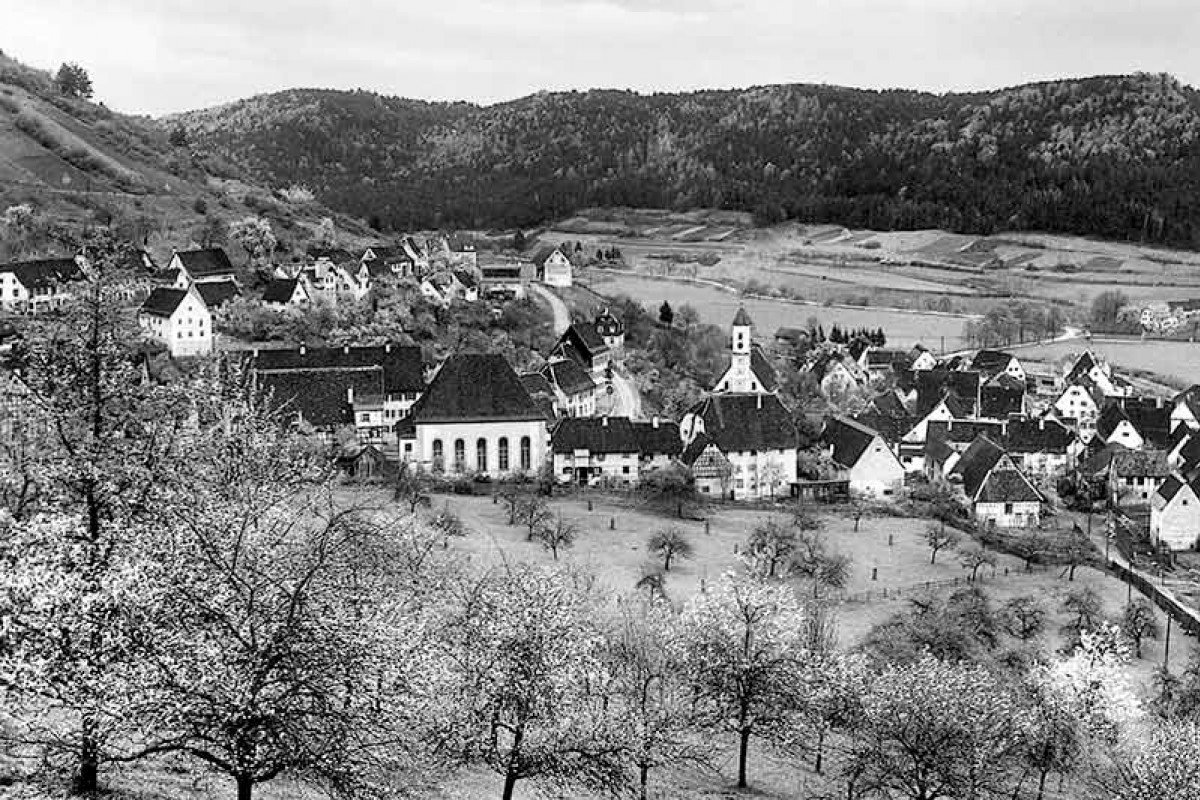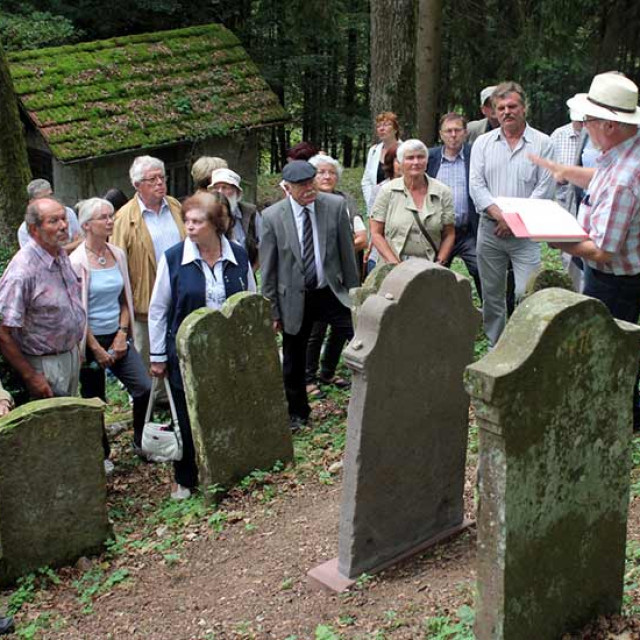Mühringen
The Jewish community of Mühringen

Establishment
The first mention of “Baruch, a Jew in Mühringen” is found in the year 1570. In 1722, there were 19 families with a total of 47 members in the community which increased greatly up to the 19th century. Mühringen was very significant as a religious centre. It was the seat of the rabbinate which was the largest in South West Germany both in expanse and membership. It produced many well-known rabbis.
The first synagogue was built in 1728. In 1810, a large new synagogue equipped for 500 people was officially opened on the same site. 75 years later it was renovated and modernized. In 1846 the Jewish population of over a hundred families with a total of 512 members reached its highest level.
In the year 1900, there were only 130 Jewish inhabitants left. Since the migration of families to the cities continued, the seat of the rabbinate was transferred to Horb in 1913. In 1933, 45 Jews were still living in Mühringen. 12 men and women were deported and murdered in 1941 and 1942.
On the night between November 8th and 9th, 1938, the interior of the synagogue was demolished and set on fire. The building remained standing and was used by the Mauser Weapons Firm from Oberndorf during the war for the storage of rifle butts. Finally the building was pulled down in1960. Today there is a parking lot on the site with an inconspicuous memorial stone.
